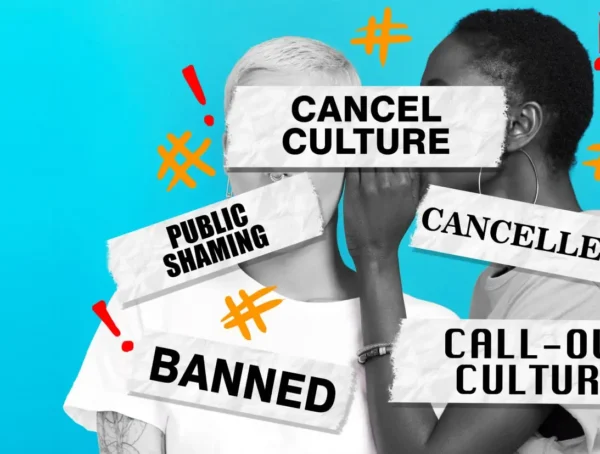TL;DR: The pandemic exposed critical failures in institutional transparency and accountability. The Biden administration publicly dismissed the lab-leak theory as conspiracy while private communications admitted its plausibility, avoiding scrutiny of U.S.-linked gain-of-function research in Wuhan. Media outlets and tech platforms actively suppressed dissent, labeling legitimate debates as “misinformation” to control public narratives. Scientists, medical experts, and dissenters were silenced through blacklists and censorship, while investigations revealed withheld emails, murky funding processes, and gaps in oversight.
Lab-Leak Theory and Gain-of-Function Research:
- The Biden administration dismissed the lab-leak theory publicly while private communications revealed its plausibility.
- U.S. funding for gain-of-function research in Wuhan was obscured through murky channels, avoiding accountability.
Censorship and Narrative Control:
- Media outlets and tech platforms collaborated with public health officials to suppress dissenting voices and alternative perspectives.
- Legitimate debates were labeled as “misinformation,” silencing experts and researchers.
Transparency Failures and Institutional Cover-Ups:
- Emails and documents were withheld, FOIA requests ignored, and internal communications concealed.
- Officials evaded transparency laws by using personal emails for sensitive communications.
Public Trust and Institutional Breakdown:
- Coordinated efforts to protect institutional narratives undermined public trust in government, science, and media.
- These failures reveal a feedback loop where power shields itself, destabilizing societal trust during crises.
The pandemic wasn’t just a health crisis; it was a test of our institutions, and they failed spectacularly. This wasn’t mere incompetence; it was a calculated blend of political interests, scientific censorship, and media compliance.
Take the Biden administration’s dismissal of the lab-leak theory. Publicly, it was mocked as a conspiracy. Privately, top scientists admitted it was plausible, even likely. But acknowledging it would raise tough questions about U.S. funding for gain-of-function research in Wuhan. So, emails were buried, FOIA requests ignored, and the public fed a narrative designed for damage control, not truth.
Meanwhile, gain-of-function research, outlawed in the U. S. , continued overseas, funded through murky channels. The media, instead of questioning these actions, echoed the official story, branding dissent as misinformation. This wasn’t just a transparency failure—it was a coordinated effort to protect institutions at the expense of public trust and safety. As the implications of this research became more apparent, the public’s growing unease prompted more scrutiny of those in power. Biden and the censorship debate took center stage as citizens demanded accountability and transparency from their government. Acknowledging the gap between official narratives and public concern would be crucial for rebuilding trust and ensuring that science serves the greater good, rather than hidden agendas.
Dr. Anthony Fauci Testifies Before House Subcommittee on COVID-19 Pandemic
The intense questioning revealed underlying tensions about trust in science and the government, with Fauci attempting to clarify his decisions while acknowledging the evolving nature of the pandemic. Critics argued that his actions contributed to a sense of confusion and mistrust among the public, further complicating efforts to combat the virus. As the hearing concluded, it became clear that Fauci’s controversial legacy would remain a focal point in the ongoing debate over public health policy and governance.Rand Paul Reads Secret Communications of Fauci’s Team
Rep. Nancy Mace on Twitter Censorship and COVID-19
Kat Cammack Exposes Blacklists of Fauci Critics
Rand Paul Confronts Antony Blinken on Research Transparency
Roger Marshall Asks: ‘Is This a Bioweapon?’
Senator Marshall urged for rigorous investigations into the circumstances surrounding the outbreak, highlighting the potential dangers posed by lab leaks and misinformation strategies that could obscure the truth. He argued that such transparency is crucial not only for public safety but also for restoring trust in scientific research and institutions. The senator called on lawmakers to prioritize efforts in regulating high-risk biological research to ensure that ethical standards are upheld and future crises can be effectively averted.Rich McCormick Challenges Fauci on Vaccine Mandates
Dr. David Morens Questioned on Email Practices
Debbie Lesko Accuses Dr. Morens of Misleading Congress
Rand Paul Presents Evidence to Samantha Power on Gain-of-Function Funding
Fauci Faces Intense Grilling Over COVID-19 Response
COVID-19 Lab-Leak Theory ‘Cover-Up’ Investigated in Senate Hearing
The committee’s discussions also highlighted the urgency for improved protocols in handling pathogens to prevent future outbreaks. Furthermore, the findings from this senate investigation into covid lableak sparked debates within the scientific community regarding accountability and ethics in research practices. As a result, there is a growing call for enhanced collaboration between government agencies and private institutions to ensure better safety measures are implemented moving forward.Nicole Malliotakis Questions Fauci on Pandemic Royalties
Morgan Griffith Challenges Fauci on Lab-Leak Theory
Michael Cloud Questions COVID Restrictions
Twitter Files Documentary: “Censored and Controlled”
So, what do we do with this? The lies, the cover-ups, the deliberate suppression of dissent—they weren’t just ethical failures. They were existential failures. When institutions built to protect us instead work to shield themselves from scrutiny, the result isn’t just a loss of trust. It’s a loss of the shared framework that allows society to function. Without transparency and accountability, trust erodes. And without trust? Well, that’s when things really start to break down. It’s tempting to look at these failures as isolated incidents, but they’re not. They’re part of a larger pattern—a dangerous feedback loop where power protects itself at the expense of the truth. The Biden administration didn’t just inherit these dynamics; it leaned into them. Media compliance, government opacity, and scientific gatekeeping weren’t glitches in the system. They were the system. And when that system suppresses inconvenient truths to maintain control, it risks destabilizing everything it’s meant to uphold. This isn’t about relitigating the past. It’s about learning from it. The next pandemic—or crisis—will come. And when it does, the question won’t just be “Are we prepared?” It will be, “Can we trust the people in charge?” If we want the answer to be “yes,” then we have to demand better—better transparency, better accountability, and, most importantly, better systems that prioritize truth over narrative control. Because without them, the real virus—the erosion of institutional trust—will continue to spread.
In today’s media landscape, the illusion of an unbiased, purely journalistic fourth estate is as believable as a late-night infomercial …
From Torches to Tweets: The Lynch Mob Goes Digital
Cancel culture is the sacred cow of our enlightened era. Over the … Let’s get one thing straight: Kamala Harris didn’t lose the 2024 election because of racism, misogyny, or some other well-worn …
Final Thoughts: The Web of Obfuscation
More from Politics
Why You Can’t Trust the News Anymore
Cancel Culture: The Hunger Games of Social Media
Why the ‘Racism’ Excuse for Kamala’s Loss Falls Apart



















